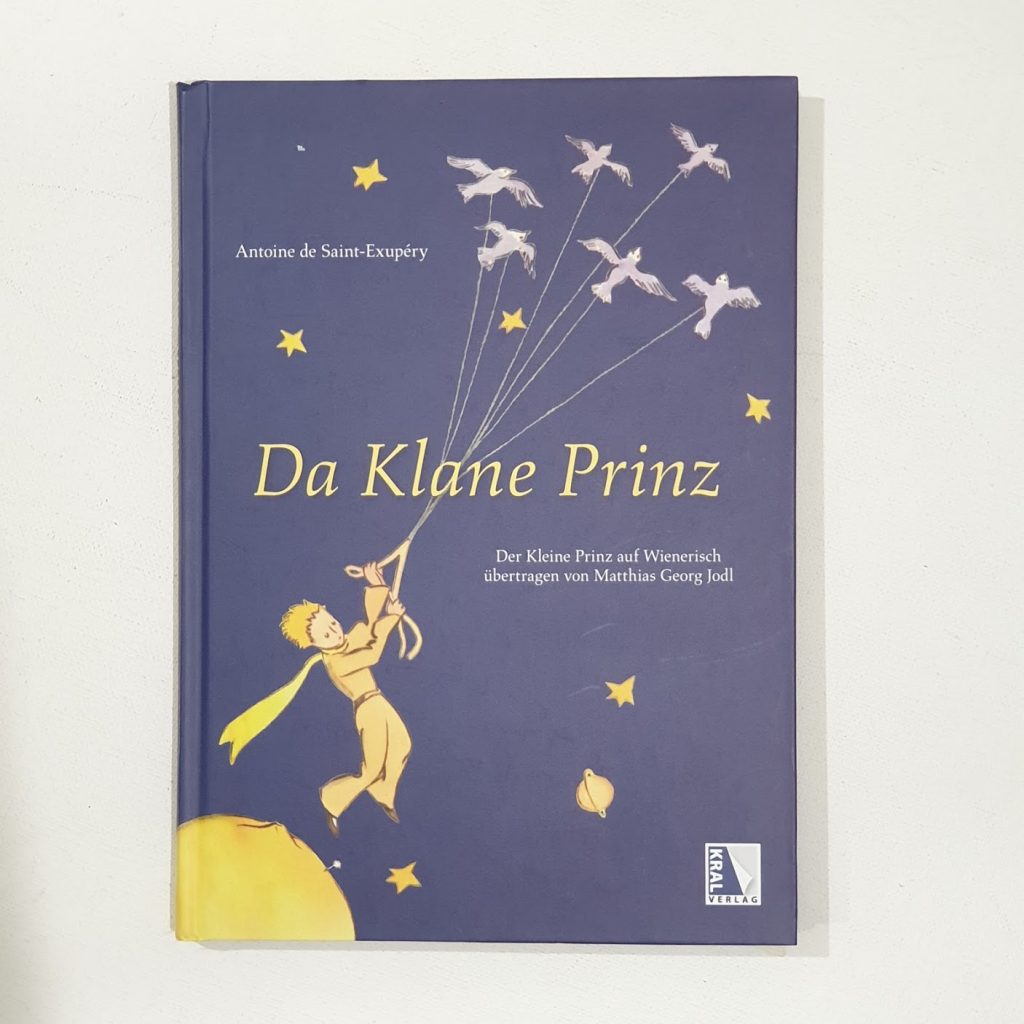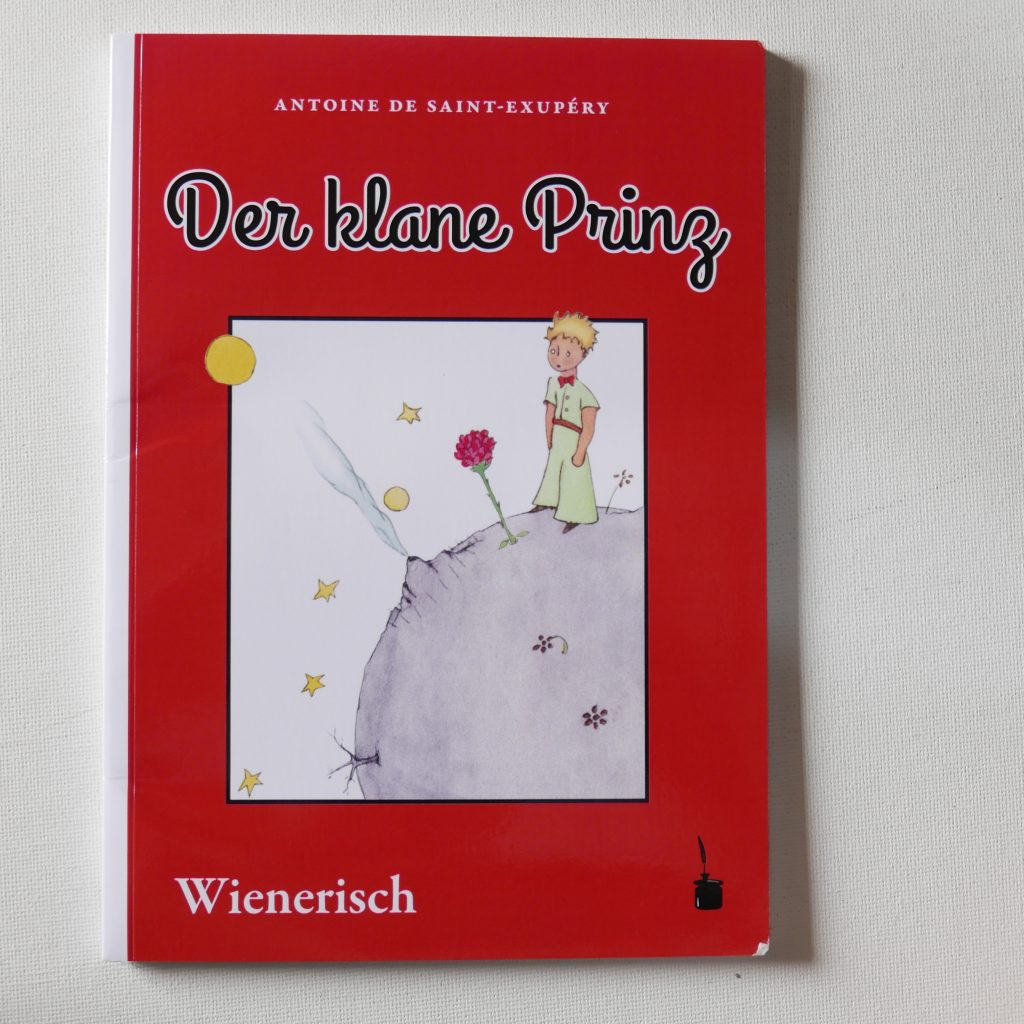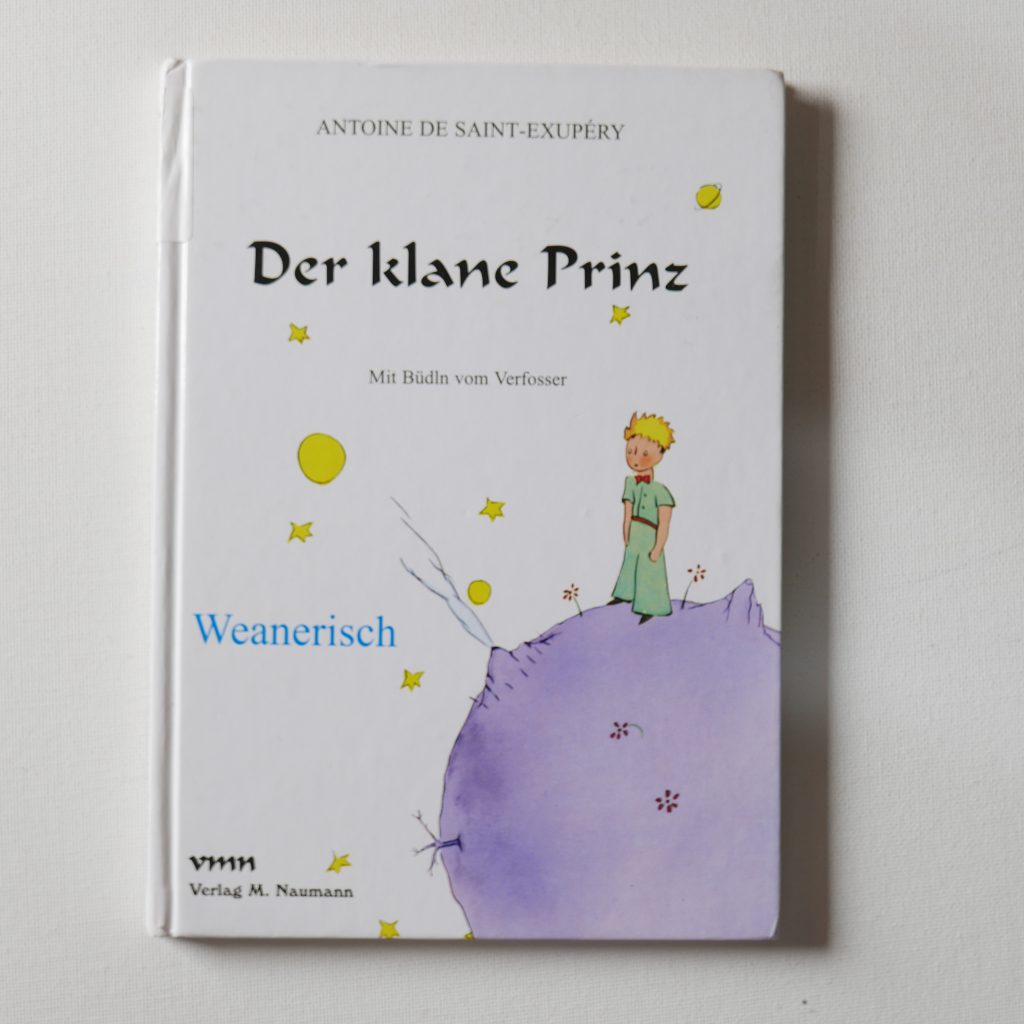
Da Klane Prinz – in Viennese German.
Viennese German, or Wienerisch, is more than just a dialect—it is the linguistic expression of Vienna’s storied soul, shaped by imperial grandeur, coffeehouse wit, working-class pride, and a cosmopolitan legacy. Rooted in the Austro-Bavarian dialect continuum, Viennese German has evolved into a unique urban vernacular that blends southern German phonology with centuries of linguistic influence from Czech, Hungarian, Yiddish, Italian, and even Turkish—thanks to Vienna’s position as the glittering capital of the multiethnic Habsburg Empire. Unlike Standard German’s sharp precision, Wienerisch flows with a melodic intonation, softened consonants, and a rich trove of idioms that reflect the Viennese’s ironic charm and deeply ingrained sense of social nuance. It is a language of subtext and mood, capable of expressing affection and mockery in the same breath—often laced with grant (grumpy humor) or Schmäh, the signature Viennese blend of dry wit and poetic complaint.

Culturally, speakers of Viennese German inhabit a city where language is central to identity and artistry. Vienna’s historic coffeehouses were and remain salons of conversation, where dialect and high literature intermingle, and where writers like Karl Kraus, Elias Canetti, and Thomas Bernhard dissected society with linguistic scalpels. In the city’s outer districts, Wienerisch retains its earthy, often working-class vibrancy, while in music, it resonates in the lilting rhythms of Schrammelmusik and the operettas of Johann Strauss, evoking a world of nostalgia, elegance, and subtle satire. The dialect is also preserved in cabaret, theater, and street banter, where it thrives as a living cultural performance. Though standard German dominates schools and media, Viennese German remains the voice of the city’s soul—its rhythm heard in markets, kitchens, and behind-the-scenes conversations. It tells the story of a city that once ruled a continent yet never lost its self-deprecating humor or its love of language as an art of everyday life.



